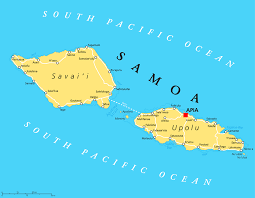ANOTHER episode with Dr Parker Yan, lovely friends, I am Dr Parker Yan from China Medical Team. Today I will introduce more details about how to prevent kidney stones because of medication.
While certain medications are necessary for treating or managing serious health conditions, they can sometimes create unintended negative consequences. And, in some cases, these consequences involve an increased risk of kidney stone formation.
The presence of the drug or its metabolites has the possibility of crystallization which results in pseudo-stones in the kidney, that is drug-induced kidney stones. There are several reasons that cause drug-induced kidney stones such as high drug dose, limited solubility, rare drug crystal forms (including its shape and size), large amounts of medication and its metabolites passing through ureters, and changes in pharmacokinetics in combination with other medication. However, it seems that patients with a prior history of ‘conventional stones’ are at greater risk of developing the drug-induced form than those patients without a prior history of stone formation. We should be alerted to the causes of this disease for it is easy to be overlooked and misdiagnosed.
There are several medications that will result in drug-induced kidney stones.
When sulfa medications are passing from the kidney in the form of metabolites or sediment, it is easy to turn into calculi in the form of crystals for the limited solubility of metabolites and sediment in urine with a normal pH level.
Carbostyril ketones medication has a high risk of causing the disease of crystalluria (refers to crystals found in the urine when performing a urine test) and cylindruria (a cast formed from gelled protein precipitated in the renal tubules and molded to the tubular lumen) especially for the big dose of the medication and elevation of pH levels in urine.
Cephalosporins medication like ceftriaxone usually combine with calcium to form an insoluble calcium salt complex in the kidney. This case often happens in children when they are taking the medication in a normal dose or a big dose with a high risk of kidney stones.
Loop diuretics, such as furosemide, inhibit both sodium and calcium resorption in the thick ascending limb of the loop of Henle. In addition to exerting a diuretic effect, this mechanism of action produces a hypercalciuric state. Renal calculi have been noted in up to 64% of low-birth-weight infants receiving furosemide therapy.
When calcium and vitamin D supplements are used together, kidney stones are prevalent in the occult hypercalciuria population. It should pay more attention to the post-menopause women who are taking these two supplements to prevent osteoporosis.
Antigout medications such as allopurinol and its metabolites, are easy to form stones in the kidney. Benzbromarone, a medication to promote uric acid excretion, will cause secondary uric acid kidney stones in patients with gout. For this kind of patient, they should drink more water or take sodium bicarbonate to make the urine alkalified when it is necessary.
Preventive measures
Most drug-induced calculi can be treated conservatively, usually maintaining a high urine output with an increased fluid intake.
If drug-induced kidney stones are suspected, measures such as reduction, discontinuation, or replacement of drugs should be taken in time. Generally, 90% of smooth stones with a diameter of less than 4mm can be discharged. Conservative medical therapies may also be used for patients with smooth stones less than 6 mm, and without urethral obstruction and infection. Medications include thiazide diuretics, allopurinol, potassium citrate, etc.
For the medications mentioned above, we should avoid taking a large dose for the long term. In the case of exclusion of contraindications, patients should increase their fluid intake. The daily drinking water volume should be at least 1500ml and 150ml for taking the medicine each time.
Appropriate urine pH should be maintained. Patients with oxalate stones, they should reduce the consumption of strong tea, spinach, tomatoes and other foods with high oxalic acid. In terms of patients with high uric acid, they should eat less high-purine foods such as animal offal, meat, seafood, and soy products.
(Translated by HUANG BAILIN, International Office, Guizhou Medical University)













